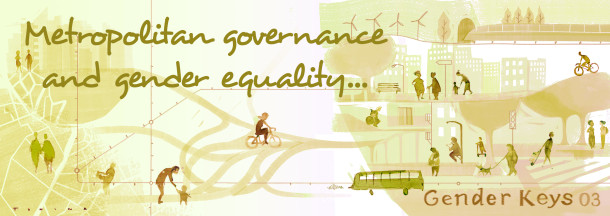
Metropolitan governance: a gender mainstreaming perspective
Last September we launched the Gender Keys collection, a series of short publications providing recommendations to promote gender mainstreaming in the metropolitan environment.
In the framework of Metropolis' commitment to gender equality, the Gender Keys collection offers tools and case studies implemented by members, to stop gender inequalities and improve the right to the city for all inhabitants.
Today we have the opportunity to launch the Gender Keys 03 "Metropolitan governance and gender equality" which focuses on the challenges of metropolitan governance facing gender issues. In just two pages and with a comprehensive language, we analyze the urban consequences of an obsolete governance model that excludes the plurality of existing views and voices. The struggle of women and vulnerable groups to penetrate governance structures is strictly related to a gender blind public space. When we talk about governance, we refer to the exercise of leadership and the power to take decisions. This vision, prevalent in different contexts around the world, is a result of the limited access of women and vulnerable groups in governance structures.
As a matter of fact, women remain underrepresented at all levels of government and their needs, voices, and requirements are not included in the development of most political strategies, initiatives, and even law. A reality highlighted by the statistics of our Metropolis Observatory: only 17% of Metropolis members are led by women.
“The fewer opportunities women and girls have to access education and decent work, the less likely it is that any governance structure, at any level, becomes more diverse and inclusive” strongly affirms Mrs. Silvia Llorente, Project officer for Metropolis Women
Following this line, it is necessary to implement policies to overcome gender inequalities.
So, it's crucial:
- Generate statistical data that make gender inequalities visible, as implemented by Buenos Aires with its "Gender indicators system"
- Promote the empowerment of young women with specific programmes such as Mashhad's "Girls leadership programme"
- Provide participatory and multi-level governance like Durban or Barcelona with its "Gender-responsive budgeting project".
The Gender Keys collection will be fully available for free download at the “Metropolitan Library” section of our website

